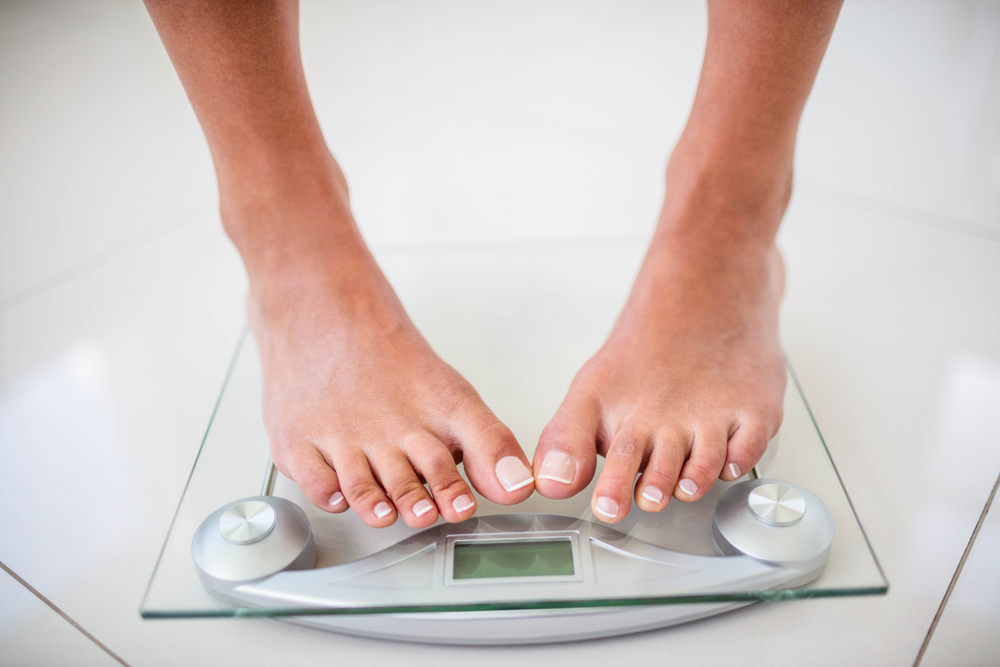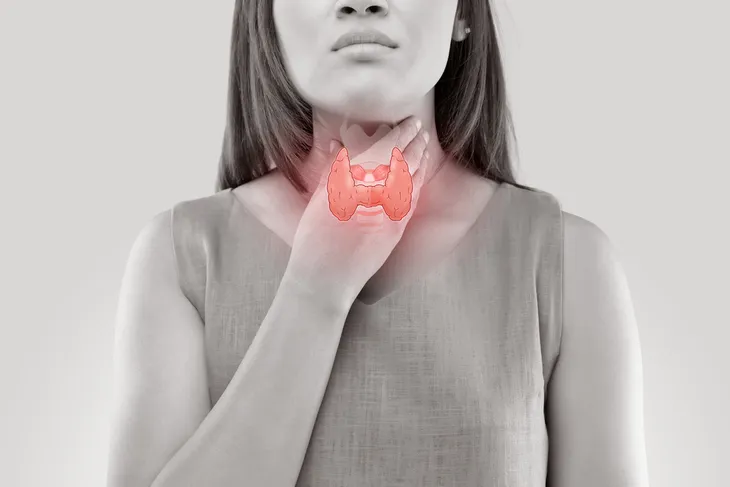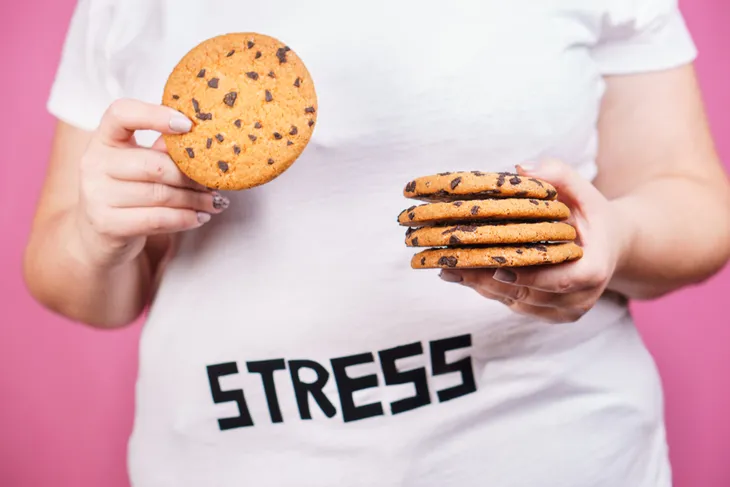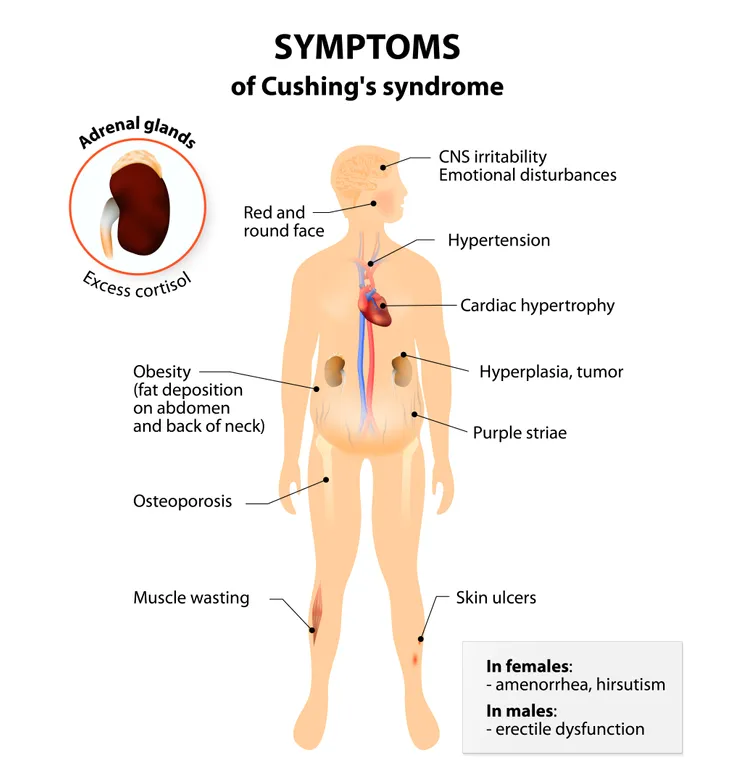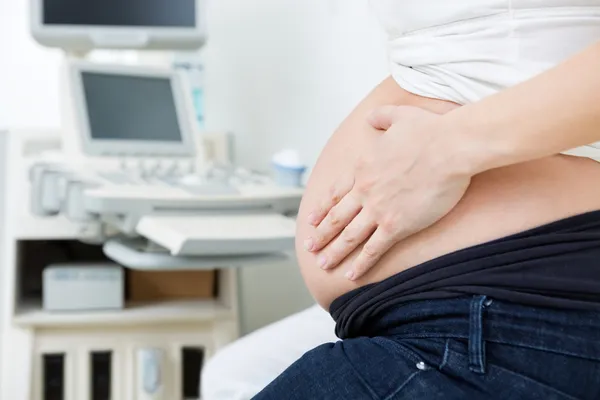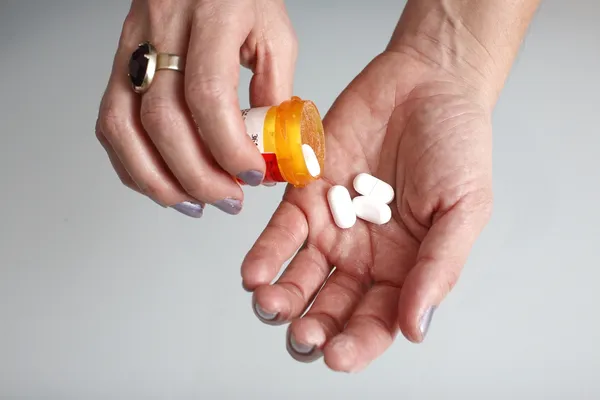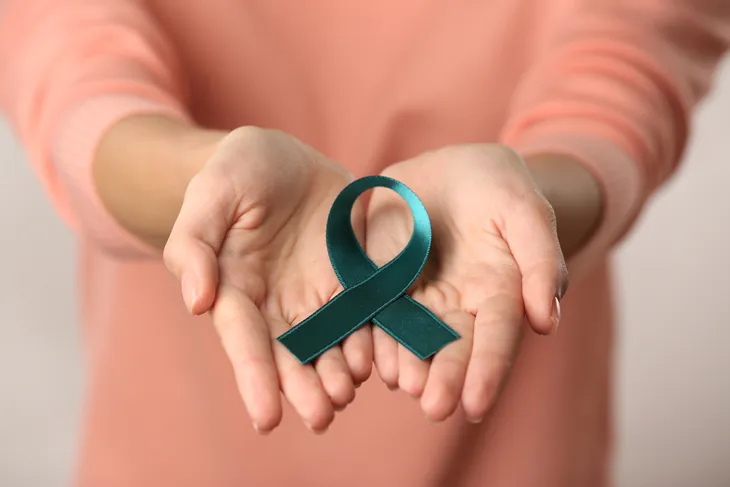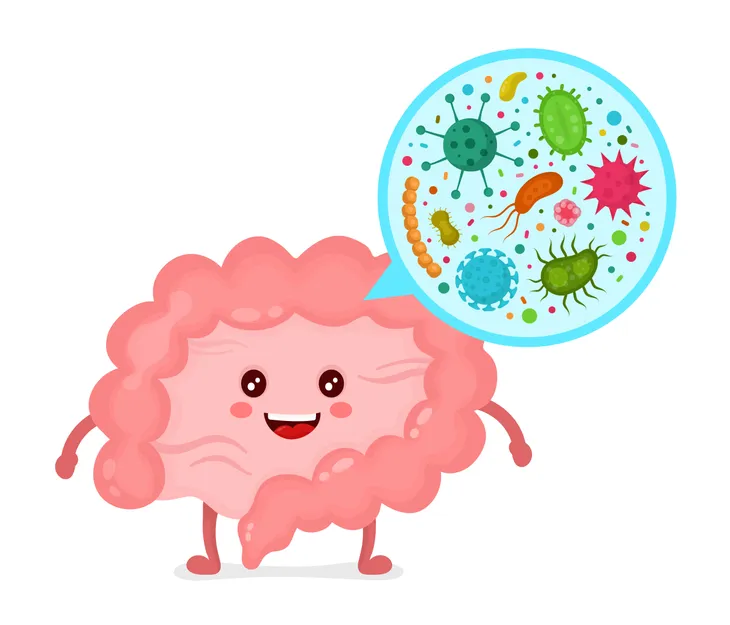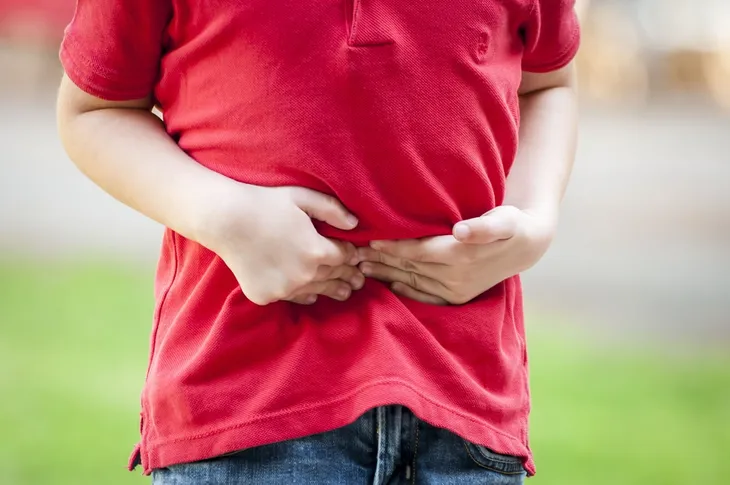We’re going to start with a disclaimer here – if you’ve been eating a lot of high-carb foods and not getting any exercise, you’re bound to put on some pounds depending on your metabolism. But what if you’ve been a steady weight for years and leading the same lifestyle, and you find the scale creeping upwards?
There are a number of reasons you could be increasing in weight, and some of them could be tied to underlying health problems that can be addressed separately. Let’s take a look at 17 of them…
Depression
More specifically, depression medications can cause you to bloat a bit, according to Prevention. The site actually says you can expect your weight to spike from 5- to 15-pounds, “with continued gradual accumulation over the years.” Changing meds could be one solution, it explains.
Even if you’re not taking medications to manage your mood, you may still see some weight gain from depression, adds the source. It cites a 2010 study that explains people who are “sad and lonely” gain weight more readily than those who are emotionally more stable.
Hypothyroidism
Hypothyroidism is a condition when your thyroid gland doesn’t produce enough hormones, and one of the results is a lower metabolism that leads to more weight being retained, according to WomenToWomen.com.
Even when some women are dieting by cutting calories, they can still experience weight gain if their thyroid is underactive, it adds. This is because the “metabolic burn continues to fall as calories are reduced,” explains the source. Women are more susceptible than men to hypothyroidism, due to hormonal fluctuations and other factors, it adds.
Lack of Fiber
This essential component of foods helps move matter through your system for regular elimination. However, if you’re “backed up” (constipated), you may put on some pounds, according to Prevention. (To learn more, read this article on Signs Your Body Needs More Fiber).
The key is to eat more fiber-rich foods and stay hydrated, it explains. You should also focus on improving the quality of your gut flora – taking probiotics (or getting it from a source like yogurt) is one way to achieve a more healthy gut.
Vitamin Deficiencies
LiveStrong notes that a lack of certain vitamins and nutrients could be adding to your weight gain issues. The source says a 2012 study shows many subjects with obesity also demonstrated a lack of certain vitamins.
The source says both water-soluble vitamins (vitamins B and C) and fat-soluble vitamins (such as D, E, A and K) should be part of your regular diet to prevent a deficit in your system. Lack of Vitamin D, which comes from the sun, limited foods (fish, cheese, eggs) and supplements, can make you feel tired and less active which could contribute to weight gain, explains LiveStrong.
Excess Stress
Some people tend to lose their appetite when they’re stressed, but for many others, “stress eating” is a way to deal with the negative feelings. WebMD explains that when “life’s demands get too intense, our bodies go into survival mode”. It also means an increase of the stress hormone cortisol, which is linked to an increase in appetite.
High-calorie “comfort foods” are a way that many people deal with stress, and it’s no secret many of these types of foods are loaded with unhealthy fats. “This combination is a perfect breeding ground for weight gain,” it explains. Try turning to other stress management techniques – like meditation or exercise – instead of eating your feelings.
Age
Unfortunately, you can’t avoid this one – and one of the “side effects” of getting older is that your metabolism (basically your body’s rate of burning calories) slows down. Your rate of natural calorie burning is slower at age 40 than age 20, explains Prevention.
The fix? Taking in more lean proteins when you’re getting older is a great way to satisfy your appetite without all the extra calories, and it will help your body burn calories more efficiently, notes the source. When it comes to losing weight in middle to later-years, exercise may actually be more important than diet for weight control, it adds.
Cushing’s Syndrome
This syndrome is very rare, but if all other causes of weight gain have been ruled out by a medical professional, there’s a chance this could be the culprit. Medical News Today calls it a “complex hormonal condition” that can occur when cortisol (stress hormones) are too high.
While Cushing’s syndrome carries a variety of symptoms ranging from thinner skin, bruising, higher blood pressure, weakness and even puffiness of the face, weight gain is also a telltale sign. It’s important that your doctor rules out this syndrome through blood and urine tests, as it can be fatal, according to the source.
Pregnancy
This one is fairly obvious, but it may be overlooked if you weren’t planning to become pregnant and are worried about sudden changes to your body. It’s pretty much a given that you’re going to put on weight when you’re pregnant, but the gain can start earlier than some women think – even before you know you’re carrying.
This early gain is not from the fetus itself – which is still tiny. Although LiveStrong says most women gain less than 5-pounds in the first 3-months of a pregnancy, it notes fluid retention from increased progesterone (a steroid hormone) levels and increased breast size can tip the scales upwards early on. A change in appetite and eating habits (“eating for two”) can also pack on pounds in the first month, it adds.
Lack of Exercise
This one might seem obvious, but a lot of people don’t get the required amount of daily exercise. For many people, myself included, it’s a matter of not having enough time. We’re all so busy with work, socializing, taking care of all of life’s responsibilities that we don’t leave enough time for ourselves and taking care of our own health. This is totally understandable. But think of it this way — if we don’t take care of ourselves, then we can’t do any of those other things, so investing in the time to exercise is super important.
Another reason people aren’t exercising is because our lives are now so full of technology and social media that we’re more prone to sitting around on our phone or watching tv. This puts us at risk for obesity and diabetes, says VeryWell Fit. “Regular exercise not only burns calories directly, but it also can jazz up your metabolism so we burn more calories in between exercise sessions.”
Insomnia or Sleep Deprivation
Similar to exericse, sleep is another thing that falls to the wayside as our schedules get busier and busier. According to VeryWell Fit, we all need at least 7-hours of sleep every night and if we don’t get it, it can lead to unintentional weight gain. “The reason for this, at least partially, is that restricting sleep increases the appetite suppressing hormone leptin, and increases the appetite stimulating hormone ghrelin,” writes the source. This is why a person craves sugar and fat after not getting enough sleep!
Women’s Health cites a study from the journal Sleep which found that people who got even just one more hour of sleep a day were able to lose more fat than those who didn’t, even when they ate the same amount of calories.
Perimenopause
There’s nothing fun about menopause, many women can attest to that. It comes with all kinds of uncomfortable symptoms, including weight gain. Perimenopause is that transition period that comes ahead of menopause and typically begins when a woman is in her mid-thirties to forties.
Perimenopause “triggers hormones like estrogen to rise and fall unevenly, which can cue weight gain in some women,” writes Women’s Health after talking to Melina Jampolis, M.D., an internist and physician nutrition specialist based in Los Angeles. The source then goes on to list other common symptoms which include irregular periods, hot flashes, mood swings, and a change in libido.
Weight gain becomes even more of a problem for women in perimenopause because aging brings on other nasty side effects like an increase in body fat and a loss of muscle mass. If you’re struggling through menopause, talk to a doctor for tips on how to better manage these symptoms.
PCOS
PCOS stands for polycystic ovary syndrome which is “an endocrine disorder that throws off the balance of reproductive hormones estrogen and testosterone, and can trigger a number of unpleasant symptoms like wacky periods, facial hair growth, and migraines,” explains Women’s Health.
This condition also causes unintentional weight gain as it interferes with how the body uses the hormone that turns sugars and starches into energy. This leads to weight gain, particularly around the midsection.
Any woman who is experiencing these symptoms along with irregular menstrual cycles, should consider PCOS to be the culprit because it’s quite common. According to research published in the Clinical Epidemiology journal, as many as one in five women suffer from PCOS.
Medication
When something is going awry in the body, it’s common to look towards what medications a person is taking because while they are taken to fix one problem, they can also cause another problem elsewhere in the body. There are a number of over-the-counter and prescription drugs that are known to trigger sudden weight gain or water retention. “Antidepressants — most commonly the selective-serotonin reuptake inhibitors (SSRIs) such as Paxil, Lexapro and Prozac — may affect the appetite center in the brain,” says Rocio Salas-Whalen, M.D., an endocrinologist at the Medical Offices of Manhattan when talking to Women’s Health.
Watch out for medications like beta-blockers which are taken to reduce blood pressure, as they can slow down the metabolism. Also some steroids that are taken for inflammation are known to cause weight gain. “Even OTC antihistamines like Benadryl, which can disrupt an enzyme in the brain that helps regulate food consumption, can trigger noticeable weight gain,” says Women’s Health.
It’s important to note that even if you’re experiencing sudden weight gain from any medication, don’t stop taking them cold turkey. Always consult with your doctor first.
Ovarian Tumor
While this cause is rare, there are times when extreme bloating happens as a result of an ovarian tumor. This tumor will cause fluid buildup in the abdomen which also leads to weight gain and pants feeling a little more snug than usual.
“Patients come in with abdominal bloating, and their usual pants are not fitting,” says Dr. Anaz Memarzadeh, M.D., Ph.D, a gynecologic cancer surgeon at UCLA Health to Women’s Health. “Sometimes the tumor is so large, it can cause distention of the abdomen.”
The risk for this is more heightened for women in menopause because ovarian cancer isn’t usually diagnosed before then, but Women’s Health urges women of all ages to be aware of the signs. Look out for “feeling full too quickly, pain in the lower stomach area, and extra pressure on the bladder.” If bloating persists, see a doctor.
Gut Microbiome is Off
You probably don’t spend a lot of time thinking about gut health, but you should! It’s actually super important. When our gut is off, so is the rest of the body. Prevention refers to a study published in the International Journal of Obesity which found that a bad mix of gut flora or microbiome, or an uneven balance or good and bad bacteria, can lead to weight gain. “It’s also one of the reasons artificial sweeteners have been linked to weight gain, as they can alter your gut microbiome,” writes the source.
Prevention also talked to Michael Roizen, MD, chief wellness officer of the Wellness Institute at the Cleveland Clinic who points out that the mix of bacteria in the gut can also throw off the body’s ability to use regulate glucose in the blood which also leads to weight gain.
Constipation
Constipation is extremely uncomfortable. Not only does it cause bloating and abdominal pain, but it can also lead to weight gain. “Constipation is defined as any two of the following: straining, hard stools, sensation of incomplete defecation, anorectal obstruction, and frequency of less than three bowel movements per week,” says PIH Health Family Medicine physician Mehwish Awan Khan, MD to Reader’s Digest. “Such symptoms can cause weight gain due to prolonged delay in stool transit throughout the colon.”
The key to treating this problem is with proper hydration, stool softeners, and eating more fiber. Once the constipation is treated, it should help with any unwanted extra weight. But to be sure that it’s not due to more serious problems like irritable bowel syndrome or colon cancer, check with a doctor.
Dehydration
A lot of us don’t drink enough water throughout the day. It’s hard to remember sometimes! You might not think this has that much of an affect on our daily life, but even when we don’t feel the obvious effects of dehydration, they are there.
Women’s Health talked to Kristen Neilan, R.D., a dietician at University of Florida who explains that many people who don’t drink enough water will often mistake their dehydration for hunger. “Confusion, tiredness, and lightheadedness are all signs of even mild dehydration,” she says.
Not only does it mess with our notion of whether we’re hungry or thirsty, but it also affects our body’s metabolism. When we’re not getting enough of it, our metabolism isn’t functioning properly, leading to unexplained weight gain. “Adequate hydration increases mitochondrial function — what that basically means is that it increases your metabolism,” says Neilan.
